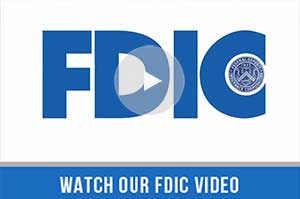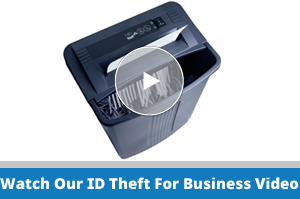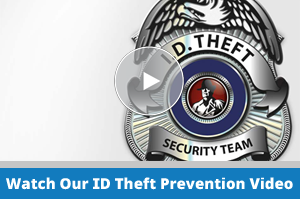Privacy & Security
To report a lost or stolen debit card, call 1-800-472-3272. For additional assistance please contact a MidSouth Bank customer service representative at your local bank office. Or by calling 1-888-440-7774 during normal business hours.
Video Tutorials
Digital Privacy Policy
Last Updated: July 19, 2024
This Digital Privacy Notice applies to users of the MidSouth Bank website and mobile application (“Services”). This Notice, in combination with other privacy disclosures that we provide to you pursuant to financial privacy laws, describes how MidSouth Bank may use and share information that we and our service providers collect from or about users in connection with our website and mobile application.
By viewing or using our Services, you consent to this Notice, which includes your consent for us to disclose and use information about you in the manner detailed in the Notice. Depending on your relationship with us, you may receive other privacy notices providing additional detail about our privacy practices.
Types of Information We Collect
We may collect personal information from you where we believe it is reasonably required for ordinary business purposes or legal obligations. We may collect information by various means, including directly from you, both online (e.g., our website) and offline (e.g., when you call us or visit a branch location), through your use of the Services, and from other third-party sources that you may use to engage with us.
- Personal Information You Provide to Us.
- We may collect personal information such as your name, mailing address, email address, telephone number, social security number, date of birth, place of employment, device contacts/contact lists, financial account numbers, and driver’s license, state identification or passport numbers.
- If you send a message to us via the Contact Us form on www.bankmidsouth.com, we will collect your name and email address, as well as any other information included in your message, in order to respond to your message or inquiry.
- Personal Information Collected from Third Parties. We may obtain information from consumer reporting agencies
in order to verify your identity or provide products and services requested by you through the Services. - Personal Information Collected Via Technology. We, and our service providers, may collect information about your device and your interactions over time with our Services, our communications, and other online services, such as:
- Device information including your device’s manufacturer and model, operating system and version, browser type, screen resolution, RAM and Disk size, CPU usage, device type (e.g., phone, tablet), IP address, host or Internet Service Provider (ISP) information, language settings, mobile device carrier, radio/network information, and general location information such as city, state or geographic area.
- Online activity, such as pages or screens you viewed, date and time of access, length of time you spent on a page or screen, the website you visited before browsing to the Service, navigation paths between pages or screens, and information about how you use and interact with our website and mobile applications.
- Cookies, which are text files that websites store on a visitor’s device to uniquely identify the visitor’s browser or to store information or settings in the browser for the purpose of helping you navigate between pages efficiently, remembering your preferences, and enabling functionality.
- Local storage technologies, like HTML5 and Flash, that provide cookie-equivalent functionality but can store larger amounts of data, including on your device outside of your browser in connection with specific applications.
- Web beacons, also known as pixel tags or clear GIFs, which are used to demonstrate that a webpage or email was accessed or opened, or that certain content was viewed or clicked.
- Location Information. If you have enabled location services on your phone and agree to the collection of your location when prompted by the Services, we will collect location data when you use the Services even when the app is closed or not in use; for example, to provide our fraud detection services. If you do not want us to collect this information, you may decline the collection of your location when prompted or adjust the location services settings on your device.
How We Use Your Information
- General Use. In general, we use your personal information to respond to your requests as submitted through the Services and to provide you the Services you request. We use your personal information, in connection with the Services, in the following ways:
- To process account applications and transactions and facilitate other account activities;
- To verify your identity (such as when you access your account information) and enhance security measures;
- To provide you with customer support;
- To provide personalized content and information, which could include tailored online ads or other forms of marketing
- To deliver marketing, informational, transactional, and relationship-oriented emails.
- Compliance and Protection. We may use your personal information to:
- Comply with applicable laws, lawful requests and legal process, such as to respond to subpoenas or requests from government authorities;
- Protect our, your or others’ rights, privacy, safety or property (including by making and defending legal claims);
- Audit our internal processes for compliance with legal and contractual requirements and internal policies;
- Enforce the terms and conditions that govern the Services; and
- Prevent, identify, investigate, and deter fraudulent, harmful, unauthorized, unethical or illegal activity, including cyberattacks and identity theft.
Disclosure of Your Personal Information
We disclose your personal information collected through your use of the Services as described below.
- In Accordance with Other Privacy Notices. Other than described in this Privacy Notice related to the Services, this Privacy Policy does not apply to the processing of your information by us or third parties with whom we share information.
- Third Party Service Providers. We may share your personal information with third party service providers that perform services for us or on our behalf, for the purposes described in this Notice, including to provide you with the Services; to conduct quality assurance testing; to facilitate the opening of new deposit accounts; to optimize the performance of the Services; to provide technical support.
- Authorities and Others. Regardless of any choices you make regarding your personal information, we may disclose your personal information to law enforcement, government authorities, and third party service providers, for the compliance and protection services described above.
Your Right to Opt Out of Collecting and Sharing Your Information
You may opt out of the disclosure of such information by not enrolling in mobile banking, installing the mobile app, or using the bank’s website. Unenrolling from and uninstalling the App may not, and in cases of information shared with third parties will not, delete information we have previously gathered or disclosed. You also have the following options:
- Opting Out of Email or SMS Communications. You may unsubscribe from email marketing communications at any time by clicking the “unsubscribe” link included at the bottom of the email or other electronic communication. Alternatively, you can opt out of receiving marketing communications by contacting us at the contact information under “Contact Us” below. If you provide your phone number through the services, we may send you notifications by SMS communications. Examples of these communications are account balance and activity alerts, fraudulent transaction alerts, and security alerts related to failed logins, password changes, or the registration of a new device. You can opt out of account communications under Settings within the App. We do not allow you to opt out of security-related communications.
- Opting Out of Location Tracking. If you initially enabled location services and consented to the collection of location information through the App, you can stop the collection of this information at any time by changing the preferences within your mobile device. However, by disabling location services you may not be able to use some of the features of the App.
Links to Other Sites
The App may contain links to third-party websites. When you click on a link to any other website or location, you will leave the App and go to another site and another entity may collect personal and/or anonymous information from you. The App’s provision of a link to any other website or location is for your convenience and does not signify our endorsement of such other website or location or its contents. We have no control over, do not review, and are not responsible for these websites or their content. The terms of this Privacy Notice do not apply to third-party websites. You should read the privacy policy of every website you visit.
Safeguards and Retention
MidSouth Bank uses reasonable administrative, technical, and physical measures to safeguard the information in our custody and control against theft, loss and unauthorized access, use, modification, and disclosure.
Protecting Children’s Privacy
We do not knowingly solicit personal information from children under the age of 13, and we do not knowingly market through our website to such children. If a child under 13 submits personal information to us through the Services and we learn that the personal information is the information of a child under 13, we will attempt to delete the information as soon as possible.
Notice Effective Date
This Notice should be reviewed periodically as it is subject to change from time to time. When a change is made, we will post the revised Notice on this page with a new “Last Updated” date at the top of the page. All changes will become effective when posted unless indicated otherwise.
Contact Us
It is important for us to have your most accurate and up-to-date contact information. If your address, phone number or email address has changed, please call or write to us at the telephone number or address below. You may also call us at the telephone number below or write us at the below address if you have any questions regarding this notice:
2526 West Main Street, Dothan, AL 36301
Toll Free: 1-888-440-7774
Business Hours: M-F 8:00 AM to 5:00 PM CT
Security
Cybersecurity
As the scale and sophistication of electronic banking cyber‐attacks increase, we must continue to educate and arm ourselves with the tools to minimize the possibility of fraudulent activities. We ask that you and your family, or your business, familiarize yourself with such threats and proactively implement measures to protect against these types of threats by:
- Keeping your browser and operating system up-to-date, new versions and updates often include security enhancements and can be downloaded, usually for free.
- Keeping your anti-virus and anti-malware software up-to-date, anti-virus and anti-malware software needs frequent updates to protect against new viruses and other malicious software.
- Using a firewall, many internet service providers offer this type of service, firewalls protect you by controlling the incoming and outgoing traffic based on defined security rules managed by your service provider.
Safeguard Your Personal Information
MidSouth Bank will never solicit personal information such as account numbers, social security numbers, passwords or other forms of non-public information by phone, email or text.
Social engineering is a fraudulent attempt to trick you into disclosing personal information such as account numbers, social security numbers, passwords or other forms of non-public information by phone, email or text.
- Do not give non-public information to someone over the phone, unless you initiated the call.
- Always use caution when reading your emails even if you “know” who the email is from. Email Phishing is a technique used to infect your PC with malicious software or to gain information for purposes of identity theft using fraudulent email messages that appear to come from legitimate businesses or persons known by the recipient. Phishing emails will almost always ask you to click a link or open an attachment that will download malicious software on your PC or take you to a site where your personal information is requested.
- Check your credit report regularly, look of activities you did not initiate such as applying for new credit.
- Always review your account statements, look for transactions you don’t recognize.
- Shred financial documents and paperwork that contain personal information before you discard them.
Monitor Your Accounts
One of the best ways to protect yourself from fraud and identity theft is by regularly reviewing your account activity and monthly account statements. If you discover suspicious or unusual activity on your accounts or suspect fraud, you need to contact us immediately.
The easiest way to monitor your account activity is with MidSouth Bank eAlerts, automated email alerts about your account balances and transactions. You can set up real-time alerts to notify you of large purchases, low balances, or a daily listing of transactions that posted to your account.
Managing Your Passwords
One of the basic lines of defense is you, or more specifically your passwords. It is important to select complex passwords to protect you and your information assets. We recommend that you consider the following tips when setting up your passwords:
- Make Passwords Impersonal
Avoid using names and dates such as birthdays, wedding anniversaries, spouse names, kids’ names, grandkids’ names, pet names, etc. These are some of the most popular and overused passwords today, making it easy for hackers to figure out.
- Mix Letters, Numbers, Symbols and Case in Your Passwords
Mixing letters, numbers, symbols and lower-case and upper-case letters adds another layer of complexity to your password and strengthens your password.
- The Longer the Password the Better
Passwords should contain as many characters as possible. The length of a password is a major key to its complexity. With each additional character added to a password, the likelihood of the password being compromised is decreased by an increasing percentage.
- Use a Formula to Help Create Your Password
User formulas to help create your passwords, but be sure the formula isn’t easily identifiable. For example, “MarkJaneLucyBob” has a lot of characters but anyone who sees this knows you are most likely using your family names as your password. Something like “Ma*Ja*Lu*Bo!” is much more secure and not too difficult to remember.
- Never Reuse Your Passwords
Although it is tempting to use the same password for multiple websites, it is not a good idea. If your password is compromised in one place, then you are vulnerable in multiple places. Use a unique password for each website you log on to.
- Change Your Password on a Regular Basis
This becomes important if you are not using the above tips related to password strength and complexity. A complicated, lengthy password that is not reused on other websites might be acceptable to use for an extended period of time. Conversely, a short, simple password including that is reused on multiple websites should be changed much more regularly.
- Protect Your Password
Never give someone your userID or password. Never give someone your password based on email or phone call.


